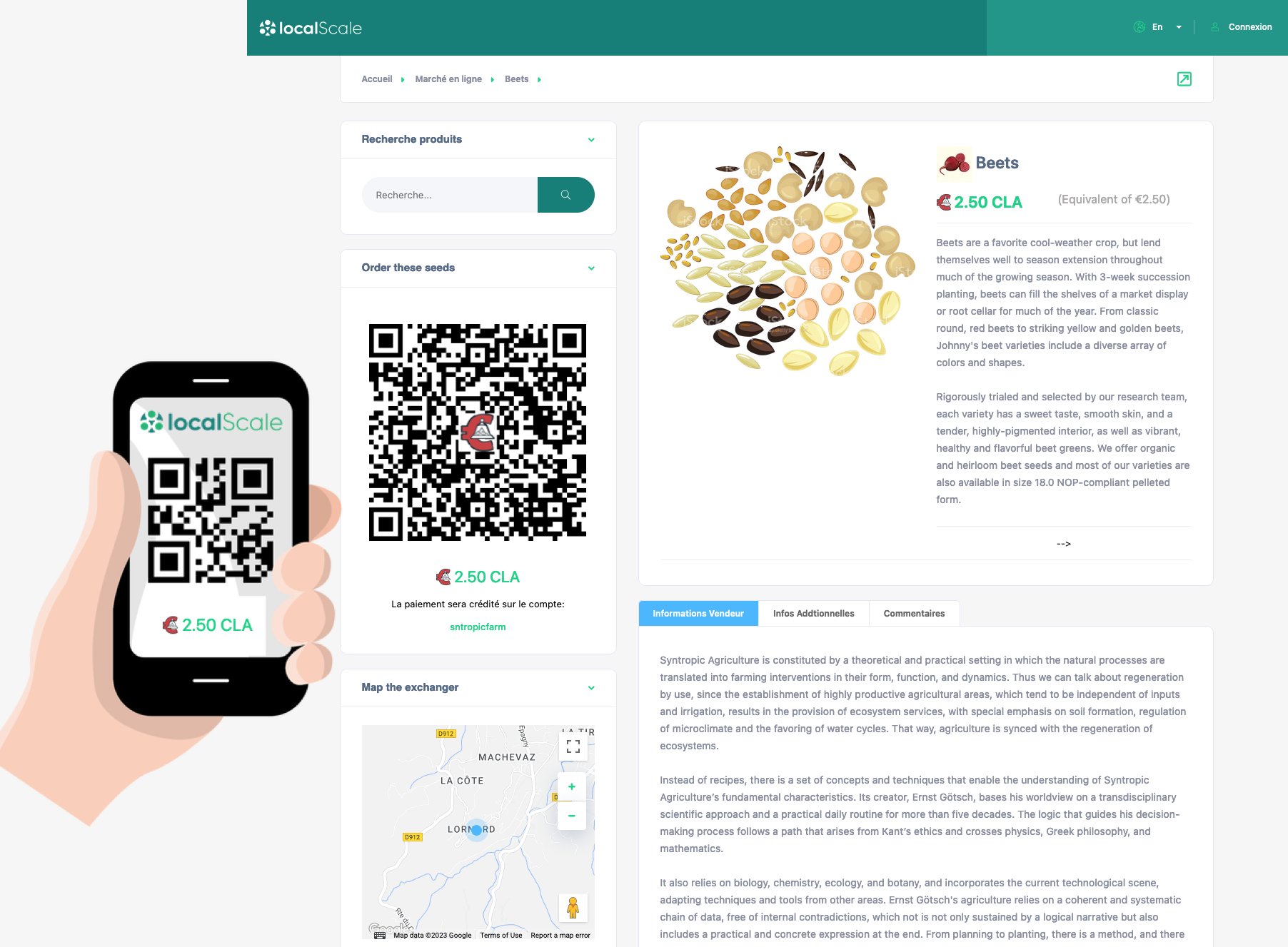The LocalScale Seed Exchange Project
Producing and Exchanging Organic Seeds Locally
This content is provided in partnership with DYISEEDS.
Why produce your own Seeds?
Producing your seeds will give our local communities greater autonomy.
Producing seeds contributes towards maintaining a common heritage that has been developed over countless generations and that is fast disappearing; and it is an act of civil disobedience against increasingly restrictive laws that enable the big seed companies to gain total control over this source of life.
The monopoly of agro-industry in a standardized and globalised market has led to the destruction of thousand-year old agricultural systems that enabled generations to feed themselves. There used to exist hundreds of thousands of vegetable species across the planet, but today they face an accelerated process of extinction and the world's food relies on an increasingly limited number of plant species.
Each region, each valley, used to have its own varieties adapted to local conditions. Exchange between farmers was part of life. Varieties travelled. Industrial agriculture, on the other hand, needs "homogenous" and "stable" varieties that will produce uniform vegetables with a long shelf life. The very opposite of the selection criteria used by farmers who developed "populations" rich in diversity and with the faculty to adapt, to evolve and to resist to changing local constraints.
Most plant diseases are today provoked by industrial agriculture. The monocultures at the heart of oversimplified and mechanised agrarian systems bring about irreversible genetic erosion that will only lead to famine in the future. They are an insult to the boundless ingenuity of generations of farmers.
How to exchange your seeds
Exchanging your seeds will easily increase diversification of what you grow.
This project originated from our partnership with Les Greniers d'Abondance, and our realization that one of the pathways to local resilience, was diversifying cultivated varieties and developing automomy in seeds. The 4th section of the research paper called "Achieving Food System Resilience" goes over this topic in details.
Producing seeds contributes towards maintaining a common heritage that has been developed over countless generations and that is fast disappearing; and it is an act of civil disobedience against increasingly restrictive laws that enable the big seed companies to gain total control over this source of life.
The LocalScale Seed Exchange System provides a way for community members to list and exchange seeds locally against digital tokens of their regenerative local currency.
Percent of plant genetic diversity lost over the past century
Percent of crop varieties have become extinct over the past century
Percent of the world's food coming from only 12 plant
Getting Started with the LocalScale Seed Exchange System
Here are the steps to start using the LocalScale Seed Exchange System.

Join LocalScale (it's free)
This is step 1

Activate your blockchain account
This is step 2

Start listing your seeds
This is step 3

Get local tokens and exchange against seeds
This is step 4

Anyone who wants to produce seeds should have a general understanding of botany, the science of plants. Plants are at present classified according to the anatomy of their flowers, their reproductive organs and their fruit. They are classified by their Latin names. Using Latin names ensures precise classification, whereas using everyday language can lead to confusion. Acquiring this knowledge will help you to use the cultivation methods best adapted for seed production and avoid unwanted cross-pollination.
Botanical Classification
Technical and theoritical tools on organic seed production
Some of the things you can do with Seeds on LocalScale.
EXTRACTION, DRYING AND SORTING OF SEED
More information here
HOW TO CHOOSE SEEDS
More information here
SELECTING PLANTS FOR SEED PRODUCTION
More information here
ISOLATION TECHNIQUES
More information here
MANUAL POLLINATION OF CUCURBITACEAE
More information here
WHAT IS A SEED?
More information here
WHAT IS POLLINATION?
More information here
PRODUCTION OF ARTICHOKE
More information here
PRODUCTION OF AUBERGINE OR EGGPLANT
More information here
PRODUCTION OF BEAN
More information here
PRODUCTION OF BEETROOT
More information here
PRODUCTION OF BROAD BEAN
More information here
PRODUCTION OF BROCCOLI
More information here
PRODUCTION OF BRUSSELS SPROUT
More information here
PRODUCTION OF CABBAGE
More information here
PRODUCTION OF CARDOON
More information here
PRODUCTION OF CARROT
More information here
PRODUCTION OF CAULIFLOWER
More information here
PRODUCTION OF CELERY
More information here
PRODUCTION OF CHARD
More information here
PRODUCTION OF CHICORY
More information here
PRODUCTION OF CORN
More information here
PRODUCTION OF CORN SALAD
More information here
PRODUCTION OF CUCUMBER
More information here
PRODUCTION OF FENNEL
More information here
PRODUCTION OF HOT PEPPER
More information here
PRODUCTION OF KALE
More information here
PRODUCTION OF KOHLRABI
More information here
PRODUCTION OF LEEK
More information here
PRODUCTION OF LETTUCE
More information here
PRODUCTION OF MELON
More information here
PRODUCTION OF ONION
More information here
PRODUCTION OF PARSNIP
More information here
PRODUCTION OF PEA
More information here
PRODUCTION OF PEPPER
More information here
PRODUCTION OF RADISH
More information here
PRODUCTION OF SAVOY CABBAGE
More information here
PRODUCTION OF SPINACH
More information here
PRODUCTION OF SQUASH
More information here
PRODUCTION OF SUNFLOWER
More information here
PRODUCTION OF TOMATO
More information here
PRODUCTION OF TURNIP
More information here
PRODUCTION OF WATERMELON
More information here
PRODUCTION OF ZUCCHINI
More information here
Try seed collaborative variety trials with our partner Seedlinked
From university and extension variety trials, to early-stage collaborative breeding projects, to products at the end of the breeding pipeline facing their final tests and getting ready for launch, SeedLinked has game-changing tools to incorporate into your trialing program.
Shop seeds
Buy organic seeds optimized for your soil and climate
Run variety trials
Reduce costs in your trialing program
Join a trial
Grow new and exciting varieties before they are released commercially

